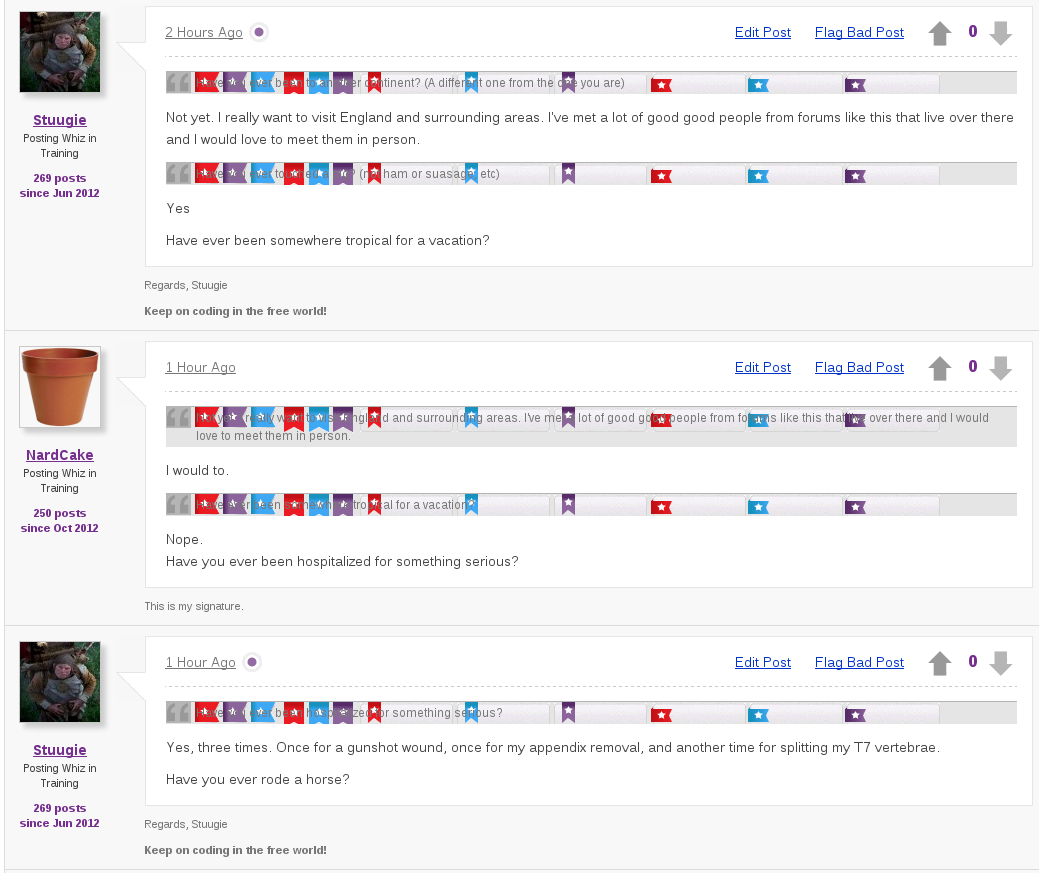"You become more and more mature as you age, up to when you're about 20, after that, you just get older." -- Judd Apatow
mike_2000_17 2,669 21st Century Viking Team Colleague Featured Poster
mike_2000_17 2,669 21st Century Viking Team Colleague Featured Poster
mike_2000_17 2,669 21st Century Viking Team Colleague Featured Poster
deceptikon commented: Good as usual +12
mike_2000_17 2,669 21st Century Viking Team Colleague Featured Poster
mike_2000_17 2,669 21st Century Viking Team Colleague Featured Poster
mike_2000_17 2,669 21st Century Viking Team Colleague Featured Poster
mike_2000_17 2,669 21st Century Viking Team Colleague Featured Poster
bguild commented: Agreed! +0
mike_2000_17 2,669 21st Century Viking Team Colleague Featured Poster
mike_2000_17 2,669 21st Century Viking Team Colleague Featured Poster
mike_2000_17 2,669 21st Century Viking Team Colleague Featured Poster
mike_2000_17 2,669 21st Century Viking Team Colleague Featured Poster
Stuugie commented: Great post, thank you very much! +0
mike_2000_17 2,669 21st Century Viking Team Colleague Featured Poster
mike_2000_17 2,669 21st Century Viking Team Colleague Featured Poster
mike_2000_17 2,669 21st Century Viking Team Colleague Featured Poster
mike_2000_17 2,669 21st Century Viking Team Colleague Featured Poster
mike_2000_17 2,669 21st Century Viking Team Colleague Featured Poster
mike_2000_17 2,669 21st Century Viking Team Colleague Featured Poster
mike_2000_17 2,669 21st Century Viking Team Colleague Featured Poster
mike_2000_17 2,669 21st Century Viking Team Colleague Featured Poster
mike_2000_17 2,669 21st Century Viking Team Colleague Featured Poster
mike_2000_17 2,669 21st Century Viking Team Colleague Featured Poster
mike_2000_17 2,669 21st Century Viking Team Colleague Featured Poster
mike_2000_17 2,669 21st Century Viking Team Colleague Featured Poster
mike_2000_17 2,669 21st Century Viking Team Colleague Featured Poster
mike_2000_17 2,669 21st Century Viking Team Colleague Featured Poster
Ketsuekiame commented: Good analysis. +0
mike_2000_17 2,669 21st Century Viking Team Colleague Featured Poster
